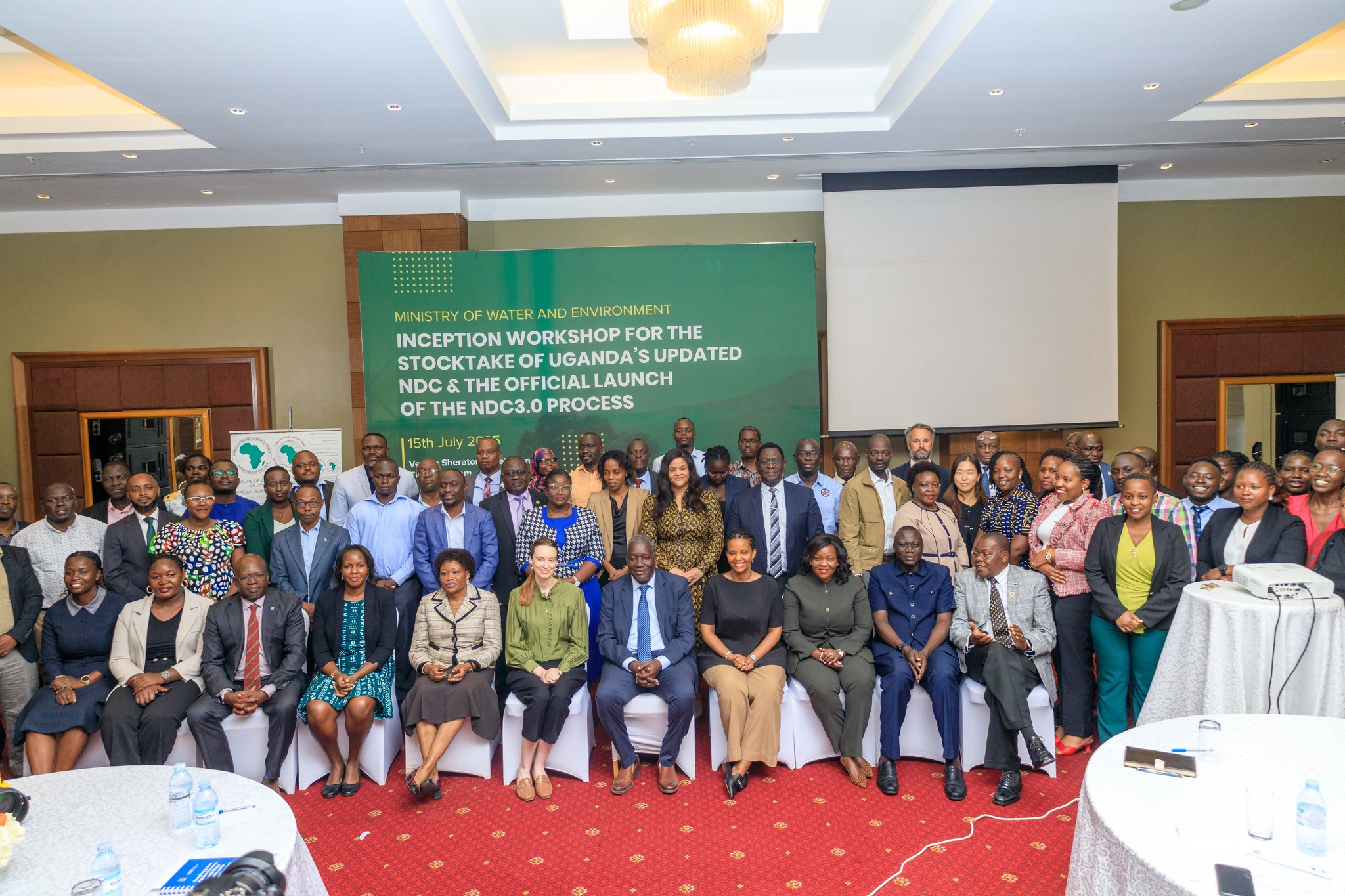Uganda Launches NDC 3.0 Process to Strengthen Climate Action and Green Growth
The AfDB, through its Climate Change and Green Growth Strategy 2010–2030, has prioritized strengthening the technical capacity of African nations to design and implement impactful climate policies.

- Country:
- Uganda
Uganda has officially launched the stocktake of its updated Nationally Determined Contribution (NDC) and initiated the development of NDC 3.0, marking a significant milestone in the country’s climate action journey. The move, backed by the African Development Bank (AfDB), aligns with the outcomes of the first Global Stocktake under the Paris Agreement and signals Uganda’s enhanced climate ambition and its commitment to a low-emission, climate-resilient future.
The announcement was made during an inception workshop held on 15 July 2025 at the Sheraton Hotel in Kampala, attended by a cross-section of stakeholders including senior government officials, civil society organizations, academia, the private sector, and development partners.
A Collaborative and Inclusive Climate Agenda
In her opening remarks, Dr. Josephine Ngure, Acting Country Manager of the AfDB in Uganda, stressed the importance of inclusive stakeholder engagement to ensure NDC 3.0 is ambitious, practical, and finance-ready.
“The process must reflect Uganda’s development priorities while also positioning the country to attract sustainable climate finance. With strong collaboration between the public and private sectors, we can create a pathway to meet both adaptation and mitigation targets,” she said.
The AfDB, through its Climate Change and Green Growth Strategy 2010–2030, has prioritized strengthening the technical capacity of African nations to design and implement impactful climate policies. Uganda’s stocktake is being supported by the Africa Climate Change Fund (ACCF) Multi-donor Trust Fund, which provides financial and technical backing to African nations seeking to align their climate goals with the Paris Agreement.
Reviewing the 2021 Updated NDC
The 2021 update to Uganda’s NDC focused on energy transition, sustainable land use, water resource management, and agriculture resilience, among others. The stocktaking process now underway seeks to:
-
Evaluate implementation progress of the updated 2021 NDC
-
Identify emerging challenges and evolving priorities
-
Update national climate indicators
-
Refine climate targets and mitigation strategies
-
Develop bankable investment plans for implementation
-
Ensure transparency and compliance with global climate norms
A consulting firm, HEAT GmbH, was tasked with developing the draft inception report. Workshop participants reviewed the report and provided feedback on key indicators, capacity gaps, and data alignment needs.
Driving Green Growth and Climate Financing
Dr. Alfred Okot Okidi, Permanent Secretary of the Ministry of Water and Environment, reaffirmed the country’s leadership in climate governance.
“We want NDC 3.0 to be investment-grade—a credible document that integrates financing, implementation timelines, and measurable impact,” he said.
He highlighted Uganda’s ambition to position itself as a green growth economy, focusing not only on climate adaptation and resilience but also on job creation and sustainable livelihoods for future generations. He called on the private sector to tap into emerging opportunities across renewable energy, sustainable agriculture, water security, and climate-smart infrastructure.
Strategic Indicators and Vision 2040 Alignment
The draft inception report includes a proposed set of national indicators to help monitor climate actions and measure progress toward targets. Discussions emphasized the need for reliable data collection, capacity building, and inter-ministerial cooperation to track results effectively.
The government reaffirmed its commitment to ensuring that the NDC 3.0 aligns with Uganda’s Vision 2040, a long-term national development strategy focused on transitioning the country into a modern, prosperous, and sustainable economy.
The NDC 3.0 process will also support Uganda’s participation in international carbon markets, strengthen its role in regional climate frameworks such as the East African Community Climate Change Policy, and enhance its access to climate financing mechanisms such as the Green Climate Fund (GCF).
Next Steps
As the NDC 3.0 roadmap unfolds, Uganda plans to:
-
Launch a nationwide awareness campaign to foster public engagement
-
Host sector-specific consultations with industries, youth, and local communities
-
Develop costed implementation frameworks and climate investment portfolios
-
Align with global benchmarks to attract public-private climate partnerships
With the successful launch of this initiative, Uganda is well on its way to becoming a regional leader in climate governance. The country’s forward-looking approach to NDC 3.0 is expected to serve as a blueprint for other nations in Sub-Saharan Africa striving to combine climate ambition with socioeconomic development.
ALSO READ
IFC Invests $3M in Kyrgyz Bank to Boost Women Entrepreneurs and Climate Finance
G20 Pledges Debt Relief and Climate Finance Support for Developing Economies
Protecting Congo’s Forests: New Metrics Tie Climate Finance to Real Conservation Gains
Uganda’s Human Capital Crisis: Why Urgent Action Is Key to Vision 2040 Success










